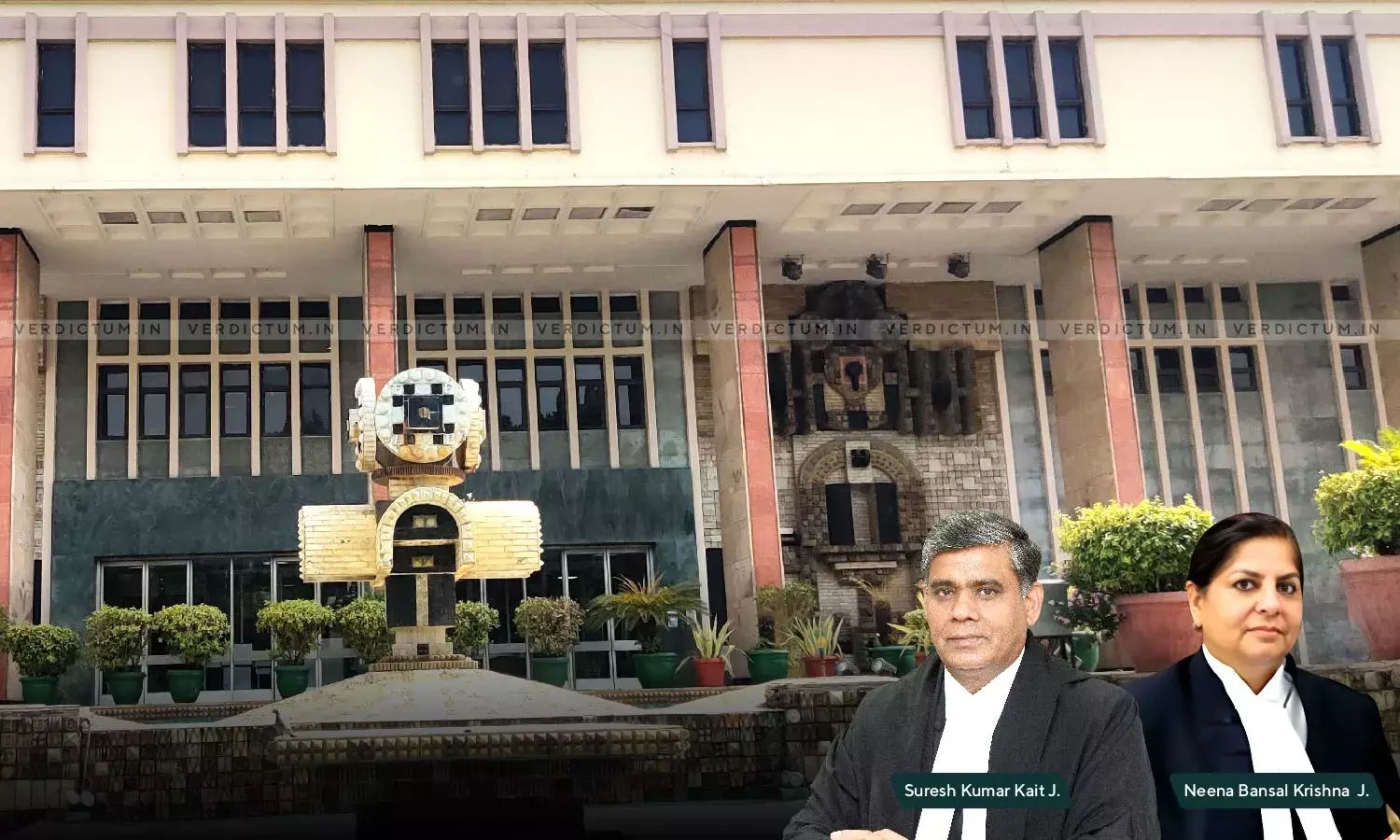Unmarried Or Widowed Daughter Has Claim In Deceased Father’s Estate But ‘Divorced Daughter’ Doesn’t Feature In Category Of Dependants: Delhi HC
The Delhi High Court has held that an unmarried or widowed daughter has a claim in the estate of deceased father but a ‘divorced daughter’ does not feature in the category of dependants for the same.
The Court held this in an appeal under Section 19 of the Family Courts Act, 1984 read with Sections 96 and 151 of CPC filed by a woman against the order passed by the Family Court whereby application of the respondents under Order VII Rule 11 of CPC was allowed and the petition of the appellant under Section 22 of the Hindu Adoption and Maintenance Act, 1956 (HAMA) for claiming maintenance was rejected.
A Division Bench comprising Justice Suresh Kumar Kait and Justice Neena Bansal Krishna said, “The claim for maintenance has been made under Section 21 of HAMA which provides for the dependents who may claim maintenance. It provides for 9 categories of relatives in which the “divorced daughter” does not feature. An unmarried or widowed daughter is recognized to have a claim in the estate of the deceased, but a “divorced daughter” does not feature in the category of dependents entitled to maintenance.”
The Bench further said that under HAMA as the appellant is not a “dependent” as defined under the Act, she is not entitled to claim maintenance from her mother and brother.
The appellant Malini Chaudhri appeared in person while Advocates Kapil Arora and Manjula Baxla appeared for the respondents.
Facts of the Case -
The appellant was a divorcee and filed the petition under Section 22 of HAMA claiming maintenance from the respondents i.e., her mother and brother. The grandmother of the appellant came from Pakistan to Delhi and acquired privileged properties and estates under the Re-settlement Scheme and also secured employment with the assistance of the Indian as well as the British Government. After the demise of grandmother, her properties and estates devolved upon the father of the appellant and her brother. The appellant’s father died in the year 1999, leaving behind four legal heirs, namely, his wife, son, and daughters.
The appellant claimed that she was not given any share as a legal heir. She got married in 1995, however, her husband deserted her and went to USA and eventually, the appellant was granted ex parte divorce in 2001. The appellant claimed that the respondents be directed to pay her an amount of Rs. 1,00,000/- per month as maintenance as she was a dependant of HUF under Section 22 of HAMA. The respondents filed an application for rejection of the petition of the appellant and the same was allowed. Hence, the petition was rejected being aggrieved by which an appeal was preferred by the appellant.
The High Court in view of the facts and circumstances of the case observed, “As has been rightly observed by the learned Judge, Family court, the appellant has already received her share from the estate of her father and having received her share, she cannot again raise any claim of maintenance afresh from the respondents. … It is significant to observe that in a joint meeting, considering the situation of the appellant, the mother/ respondent No. 2 had agreed to pay her Rs. 45,000/- per month which has been paid till November, 2014.”
The Court noted that the appellant’s mother has already made arrangements for providing residence to her and that the respondents also supported the appellant by voluntarily giving her Rs. 45,000/- per month till 2014.
Accordingly, the High Court dismissed the appeal.
Cause Title- Malini Chaudhri v. Ranjit Chaudhri & Anr. (Neutral Citation: 2023:DHC:6635-DB)




